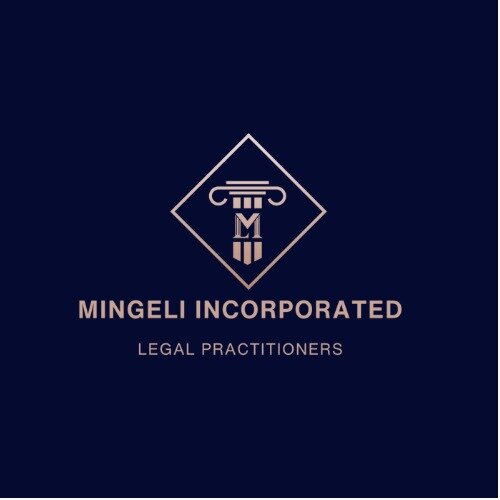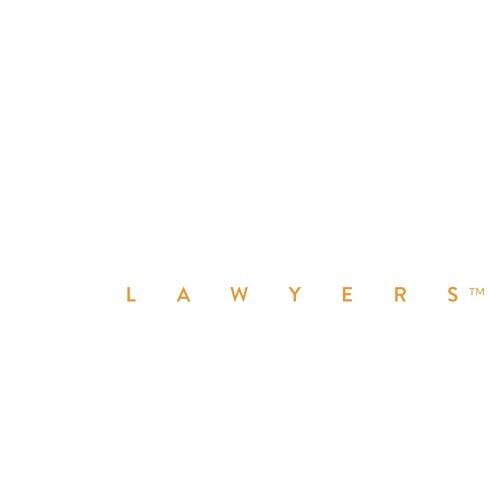Best Labor Law Lawyers in Windhoek
Share your needs with us, get contacted by law firms.
Free. Takes 2 min.
List of the best lawyers in Windhoek, Namibia
About Labor Law in Windhoek, Namibia
Labor Law in Windhoek, Namibia is governed primarily by the Namibian Labour Act, 2007. This legislation establishes a legal framework for the employment relationship, ensuring that both employers and employees are protected and fairly treated. The Labor Law in Windhoek addresses various aspects of employment, including terms of employment, dispute resolution, workers' compensation, and workplace safety. The primary objective is to promote fairness, equality, and stability in the workplace while fostering economic growth and productivity. Being aware of these regulations is crucial for both employees and employers to maintain a harmonious and lawful working environment.
Why You May Need a Lawyer
Individuals may require legal assistance in Labor Law due to several common situations:
- Disputes over Employment Contracts: Issues related to contract terms, breaches, or wrongful termination may necessitate legal intervention.
- Unfair Dismissals: If an employee feels they have been terminated without fair procedure or reason, they may seek legal advice.
- Workplace Discrimination or Harassment: Legal help can be critical when addressing issues of discrimination or harassment at work.
- Wage or Salary Disputes: Discrepancies in pay, unpaid wages, or benefits disagreements might need legal attention.
- Occupational Health and Safety: Legal guidance can be vital when ensuring compliance with workplace safety regulations and addressing violations.
Local Laws Overview
Key aspects of local labor laws in Windhoek, Namibia include:
- Employment Contracts: Must be explicit, outlining all terms and conditions of the employment relationship.
- Working Hours and Overtime: Regular work hours are defined, and compensation for overtime should be fair and as per lawful standards.
- Minimum Wage: The Labor Act prescribes a minimum wage that employers must adhere to, protecting employees from underpayment.
- Leave Entitlements: Regulations regarding annual leave, sick leave, and maternity leave are detailed within the Labor Act.
- Termination Procedures: The recommended processes for lawful termination of employment are clearly defined to protect both parties.
Frequently Asked Questions
What are the legal requirements for an employment contract in Namibia?
An employment contract in Namibia must be in writing and include the employee's and employer's details, job description, remuneration, working hours, and terms regarding leave and termination.
How is minimum wage determined in Namibia?
Minimum wage in Namibia is periodically reviewed and set by the Ministry of Labour, Industrial Relations, and Employment Creation. It varies by industry and is legally binding.
What constitutes unfair dismissal?
Unfair dismissal is when an employer terminates an employee's contract without a fair reason or without following due process defined in the Labour Act. Employees have the right to contest such dismissals.
Can an employee be dismissed without notice?
While summary dismissal is possible for serious misconduct, typically, a notice period is required unless the employment contract states otherwise.
What rights do employees have regarding workplace safety?
The Labour Act stipulates that all employers must provide a safe work environment, conduct regular safety checks, and train employees on safety procedures. Employees have the right to refuse unsafe work conditions.
How are workplace disputes resolved?
Workplace disputes can be resolved through internal grievance procedures, mediation by labour relations officers, or through the Labour Court for formal resolutions.
What are the rules around overtime pay?
The Labour Act specifies that any work performed beyond the standard working hours should be compensated at an overtime rate, which is typically 1.5 times the normal rate or as agreed in the contract.
Are there specific protections against workplace discrimination?
Yes, Namibia's Labour Act prohibits discrimination based on race, gender, religion, disability, and other grounds. Violations of these provisions can be challenged legally.
What is the process for workers to claim severance pay?
Employees may be entitled to severance pay upon termination due to redundancy, retirement, or specific contract terms. The claim process involves submitting a written request as per the Labour Act provisions.
Can an employee work while on maternity leave?
Employees on maternity leave are entitled to 12 weeks of leave and are not required to perform work duties during this period. Any work undertaken is voluntary unless specified in a prior agreement.
Additional Resources
For additional information and support regarding Labor Law in Windhoek, consider contacting:
- Ministry of Labour, Industrial Relations and Employment Creation: Provides regulatory oversight and information on employment laws.
- The Labour Commissioner’s Office: Offers dispute resolution services and guidance on labor disputes.
- Namibian Employer's Federation: Provides resources and advice for employers on maintaining legal employment practices.
- Namibia Public Workers Union (NAPWU): Represents workers in legal disputes and labor negotiations.
Next Steps
If you need legal assistance in Labor Law, consider the following steps:
- Consult a Labor Lawyer: Seek a lawyer specializing in Labor Law to provide professional guidance on your situation.
- Gather Documentation: Collect relevant documents such as employment contracts, pay stubs, and correspondence that may support your case.
- Utilize Mediation Services: Consider mediation services offered by the Labour Commissioner to resolve disputes amicably.
- Stay Informed: Regularly update your knowledge about labor rights and responsibilities to better understand your standing in potential disputes.
Lawzana helps you find the best lawyers and law firms in Windhoek through a curated and pre-screened list of qualified legal professionals. Our platform offers rankings and detailed profiles of attorneys and law firms, allowing you to compare based on practice areas, including Labor Law, experience, and client feedback.
Each profile includes a description of the firm's areas of practice, client reviews, team members and partners, year of establishment, spoken languages, office locations, contact information, social media presence, and any published articles or resources. Most firms on our platform speak English and are experienced in both local and international legal matters.
Get a quote from top-rated law firms in Windhoek, Namibia — quickly, securely, and without unnecessary hassle.
Disclaimer:
The information provided on this page is for general informational purposes only and does not constitute legal advice. While we strive to ensure the accuracy and relevance of the content, legal information may change over time, and interpretations of the law can vary. You should always consult with a qualified legal professional for advice specific to your situation.
We disclaim all liability for actions taken or not taken based on the content of this page. If you believe any information is incorrect or outdated, please contact us, and we will review and update it where appropriate.
















